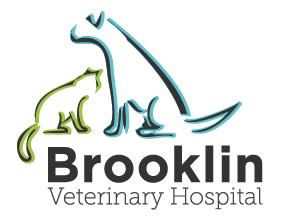Library
-
Burr tongue is (also called burdock tongue, granular stomatitis, and granulomatous glossitis) is caused by ingestion of the burrs from the burdock plant. Burr tongue is most seen in long-haired dogs when they accidentally traumatize their tongue and mouth on the burrs during grooming. The hooked scales of the burrs become embedded in the tongue and gums and cause an intense foreign body reaction.
-
Buspirone is given by mouth and is used off label to treat behavior disorders in dogs and cats. Common side effects include increased friendliness or aggression, sleepiness, decreased appetite, nausea, or a slower heart rate. Do not use in pets that are allergic to it or have recently worn a flea/tick collar. If a negative reaction occurs, please call your veterinary office.
-
Butorphanol is a partial opiate agonist/antagonist that is used as an analgesic, pre-anesthetic, antitussive, or antiemetic. The injectable form is used subcutaneously, intramuscularly, or intravenously, and the tablet is given by mouth. Side effects include sedation, ataxia, anorexia, or rarely diarrhea. Caution should be used in pets with liver or kidney disease, Addison's disease, head trauma, or other CNS dysfunction, or in geriatric or severely debilitated patients.
-
A caesarean section is a major surgery to help deliver puppies, usually performed in an emergency. After surgery, the dog may be sleepy but should be able to eat a high-quality diet and nurse puppies within a few hours. The dog should be monitored for fever, abnormal vulvar discharge, and abnormalities at the incision.
-
Pet owners may not realize that caffeine can be harmful to their pets. They also may not know that many foods and drinks in their cupboards contain caffeine. This particular chemical can be toxic for both cats and dogs.
-
Cleaning a bird cage should be a weekly routine. Since food particles and fecal material can harbor and entice bacterial and fungal growth, cage cleaning is extremely important to maintain a healthy environment for your bird. Soap and water make excellent cleaning solutions. Some materials, such as wood, wicker, and rope are impossible to disinfect and, therefore, should be replaced regularly.
-
These two conditions are the result of calcium being deposited within the skin. They are usually of minor significance in young dogs and cats but can indicate serious underlying diseases in older pets. This handout describes the different types of calcinosis circumscripta and cutis and associated causes, clinical signs, and treatments.
-
Calcitriol is used off label and is given by mouth or injection to treat low blood calcium levels associated with low parathyroid hormone, as well as chronic kidney disease, certain cancers, and certain skin diseases. Side effects are uncommon if the dose is appropriate.
-
Calcium acetate is given off label and by mouth to treat elevated blood phosphorus levels, especially due to kidney disease. Side effects may include nausea or stomach upset. This medication should not be used in pets that are allergic to it or have high blood calcium levels. If a negative reaction occurs, please call your veterinary office.
-
Calcium carbonate + chitosan (brand name Epakitin®) is a phosphorus binder and calcium supplement. It is used to treat high blood phosphorus levels in cats and dogs with chronic kidney disease and to treat low blood calcium levels in cats, dogs, and other species.



